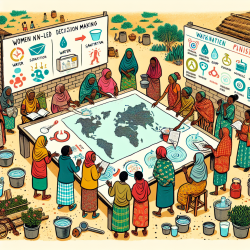Leveraging Telemedicine to Improve Outcomes for Children with Cerebral Palsy During and Beyond the Pandemic

The COVID-19 pandemic has significantly disrupted the lives of children with cerebral palsy (CP) and their caregivers. A recent study titled "Evaluation of the effects of the COVID-19 pandemic on children with cerebral palsy, caregivers’ quality of life, and caregivers' fear of COVID-19 with telemedicine" provides crucial insights into these impacts and highlights the potential of telemedicine as a solution. This blog will explore the key findings and discuss how practitioners can leverage these insights to improve outcomes for children with CP.
Impact of COVID-19 on Children with CP and Their Caregivers
The study, which included 94 caregivers, found that:
- 67.1% of children did not attend routine control check-ups during the pandemic.
- 12.8% discontinued their physical therapy sessions.
- Caregivers' physical and mental quality of life (QOL) significantly decreased during the pandemic.
- The median score of caregivers’ Fear of COVID-19 scale (FCV-19S) was 17.5, indicating a high level of fear.
Key Findings and Implications
The study revealed several critical points:
- Disruptions in routine healthcare and rehabilitation services negatively affected the general health, mobility, spasticity, joint motion, social function, communication, and mood of children with CP.
- Caregivers experienced a significant decline in their physical and mental QOL, particularly those with a history of COVID-19 infection.
- Fear of COVID-19 did not significantly affect caregivers' QOL but was prevalent among more than half of the participants.
Leveraging Telemedicine for Better Outcomes
Given the significant disruptions caused by the pandemic, the study underscores the importance of telemedicine and telerehabilitation in providing continuous care. Here are some actionable steps practitioners can take:
- Implement Telemedicine Services: Utilize telemedicine platforms to conduct routine check-ups, consultations, and follow-up visits to ensure continuous care.
- Telerehabilitation Programs: Develop and implement telerehabilitation programs to provide physical therapy and other essential services remotely.
- Training and Resources: Equip caregivers with the necessary training and resources to effectively participate in telemedicine and telerehabilitation sessions.
- Mental Health Support: Provide mental health support for caregivers to address the psychological burden exacerbated by the pandemic.
Encouraging Further Research
While this study provides valuable insights, further research is needed to optimize telemedicine and telerehabilitation practices. Practitioners are encouraged to:
- Conduct longitudinal studies to assess the long-term effects of telemedicine on children with CP and their caregivers.
- Investigate the specific needs and preferences of families to tailor telemedicine services effectively.
- Collaborate with interdisciplinary teams to develop comprehensive telehealth strategies.
Conclusion
The COVID-19 pandemic has highlighted the vulnerabilities of children with CP and their caregivers. By leveraging telemedicine and telerehabilitation, practitioners can mitigate the negative impacts of such disruptions and ensure continuous, high-quality care. To read the original research paper, please follow this link:
Evaluation of the effects of the COVID-19 pandemic on children with cerebral palsy, caregivers’ quality of life, and caregivers' fear of COVID-19 with telemedicine.
Citation: Cankurtaran, D., Tezel, N., Yildiz, S. Y., Celik, G., & Unlu Akyuz, E. (2021). Evaluation of the effects of the COVID-19 pandemic on children with cerebral palsy, caregivers’ quality of life, and caregivers' fear of COVID-19 with telemedicine. Irish Journal of Medical Science, 190(4), 1473-1480. https://doi.org/10.1007/s11845-021-02622-2










